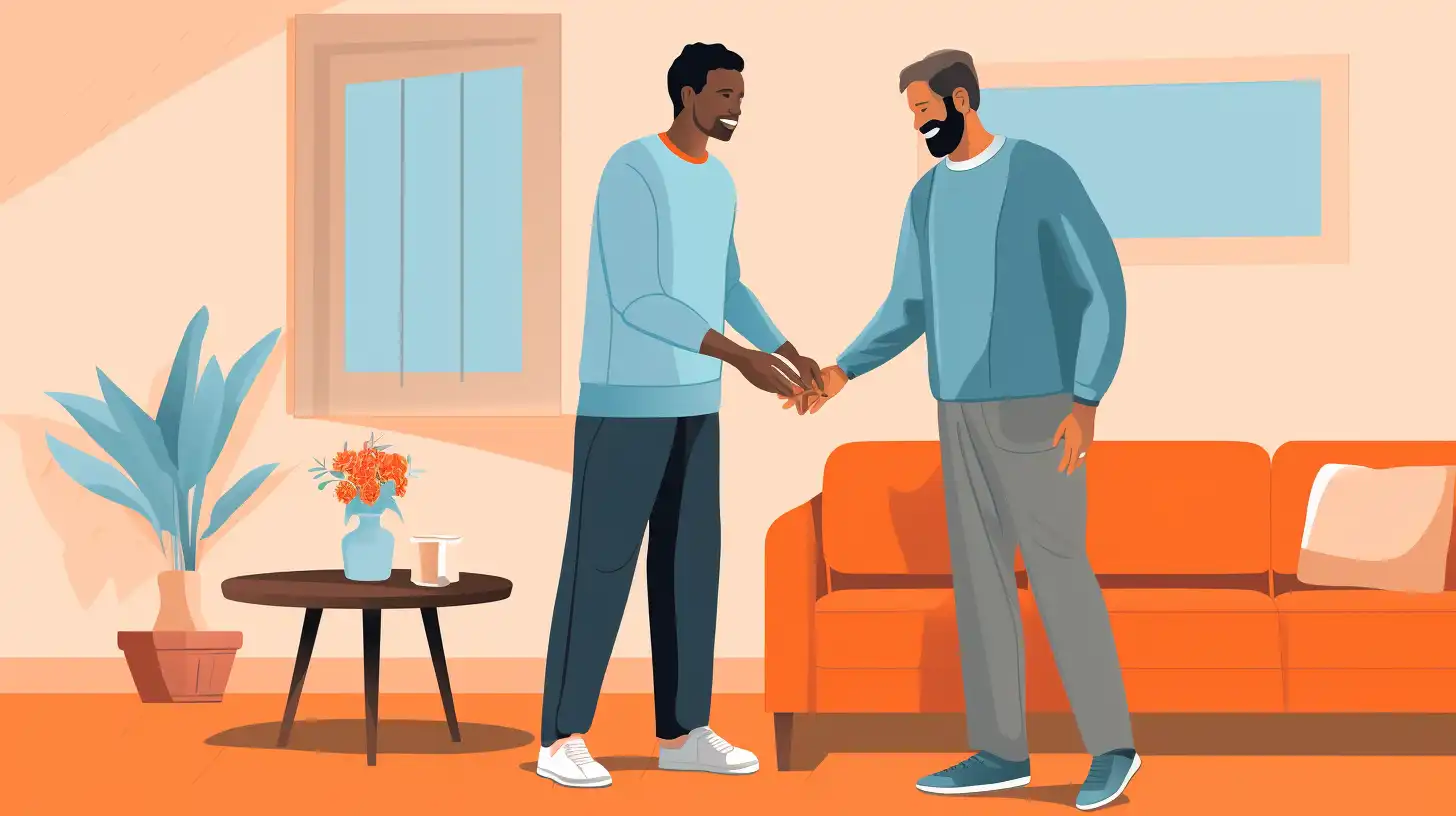Building a Visitation Team with CareNote – Part 2 – Listening and Empathy
Empower your pastoral visits with CareNote's empathetic listening, capturing each interaction for deeper, Jesus-inspired care and transformative journeys. CareNote helps you remember, be informed, and deliver care.

Welcome back to our series on building a visitation team with CareNote. Today, we delve into the critical aspects of "Listening and Empathy" in pastoral care. This part draws inspiration from "Holy Listening" by Margaret Guenther and Brené Brown's "The Gifts of Imperfection."
Listening as Spiritual Hospitality
Listening is an act of spiritual hospitality. It's not merely hearing words, but creating a safe, open space where the spoken and unspoken are equally welcomed and valued. In CareNote, we use features like detailed note-taking and reminders to foster this environment of attentive listening. This approach mirrors Guenther’s insights on the need for patient and open narrative-sharing in pastoral encounters.
In embracing listening as a form of spiritual hospitality, we acknowledge the profound impact of being truly heard. This approach transcends the act of passive hearing and becomes an active engagement with the stories and experiences of those we visit. CareNote's functionality supports this by enabling us to capture the nuances of these narratives, not just in the words spoken but also in the silences and between the lines. By documenting these details, we not only remember the specifics of each encounter but also reflect on them, allowing us to offer more thoughtful and empathetic responses in future interactions. This level of attentive listening is a gift we offer to those we serve, affirming their worth and dignity in our shared journey of faith.
The Art of Asking and Listening
Effective pastoral care involves asking the right questions, not to seek specific answers, but to encourage dialogue and understanding. CareNote helps us structure our conversations and follow-ups, ensuring we respect each person’s journey without imposing our own conclusions. This practice aligns with Nouwen's concept of being a non-anxious, silent yet present guide.
In the art of asking and listening, it's crucial to balance curiosity with respect for the individual's pace and readiness to share. CareNote's features enable us to record key points from our conversations, which helps in crafting questions that are thoughtful and relevant to each person's context. This approach fosters an environment where individuals feel genuinely heard and understood, rather than feeling pressured to provide certain responses. By maintaining this balance, we mirror Nouwen's vision of guiding without dominating, creating a safe space where healing and genuine dialogue can flourish. This thoughtful questioning, coupled with deep listening, becomes a powerful tool in pastoral care, allowing us to connect more meaningfully with those we serve.
Empathy: Feeling With Others
Empathy in pastoral care means feeling with others without absorbing their pain. CareNote assists in maintaining a balanced approach where empathy is thoughtful and doesn’t overwhelm the caregiver. The platform allows for a degree of self-disclosure and personal reflection, essential for developing a deep, empathetic connection with those we serve.
Empathy, as a cornerstone of effective pastoral care, requires a delicate balance between understanding and maintaining our own emotional boundaries. Through CareNote, we can document our interactions, reflections, and emotional responses, which helps us to process our feelings separately and avoid becoming overly absorbed in the pain of those we care for. This conscious practice of empathy allows us to genuinely feel and understand the struggles of others while preserving our capacity to offer continuous support. By carefully managing our emotional engagement with the aid of CareNote, we ensure that our empathy remains a source of strength and healing, both for ourselves and for those we serve.
Biblical Reflection: The Blind Man’s Story (Luke 18:35-43)
This passage exemplifies the essence of empathetic listening. Jesus’ approach to the blind man – asking what he wants instead of assuming – is a model for us. In our visitation ministry, we aim to replicate this model. CareNote's tools help us document these interactions, reflecting Jesus' method of opening spaces for healing through attentive listening and genuine empathy.
In emulating Jesus' approach to the blind man, we learn the power of questions in pastoral care. By asking rather than assuming, we recognize and honor the individuality and agency of each person we serve. CareNote supports this by providing a structured way to record each individual's responses and needs, ensuring that no detail is overlooked. This record-keeping not only helps us remember specific requests or concerns but also aids in tailoring our future interactions to be more effective and personal.
Furthermore, the story of the blind man in Luke 18:35-43 teaches us about the transformative potential of being heard and understood. Jesus' interaction with the man wasn't just about physical healing; it was also about restoring dignity and acknowledging his humanity. In our visitation ministry, supported by CareNote, we strive to offer this same level of acknowledgment and respect. Each note, each follow-up, each scheduled visit becomes an opportunity to affirm the worth and value of the individuals we serve, mirroring the compassion and respect Jesus showed in his ministry.
CareNote in Practice
With CareNote, pastoral teams can document and track their interactions, ensuring every visit is guided by these principles of listening and empathy. The software’s functionalities aid in setting up visits, recording conversations, and planning follow-ups, thus enhancing the quality of pastoral care provided.
One standout feature of CareNote that significantly enhances the pastoral visitation process is its comprehensive interaction tracking system. This system allows pastoral teams to meticulously document each visit's details, including the date, duration, and key points of discussion. This level of documentation is crucial for maintaining continuity in pastoral care, especially when dealing with sensitive or ongoing situations. By having a detailed history of past interactions at their fingertips, caregivers can ensure that each visit builds on the previous one, providing a more tailored and effective care experience. Furthermore, this feature facilitates a collaborative approach within the pastoral team, as any member can access these records to get up to speed before their own visits, ensuring seamless care and support for the congregation.
As we continue to explore building a visitation team, remember that listening and empathy are the bedrock of effective pastoral care. In the next part of our series, we'll discuss "Self-Care, Boundaries, and Referral" – crucial elements for sustaining a healthy, impactful visitation ministry. Stay tuned, and in the meantime, explore how CareNote can transform your church’s approach to pastoral care.
Stay tuned for more insights on building a compassionate and effective visitation team with CareNote. We believe that by embracing our vulnerabilities and leveraging the right tools, we can provide care that truly resonates with those in need.
Other CareNote Blog Entries













